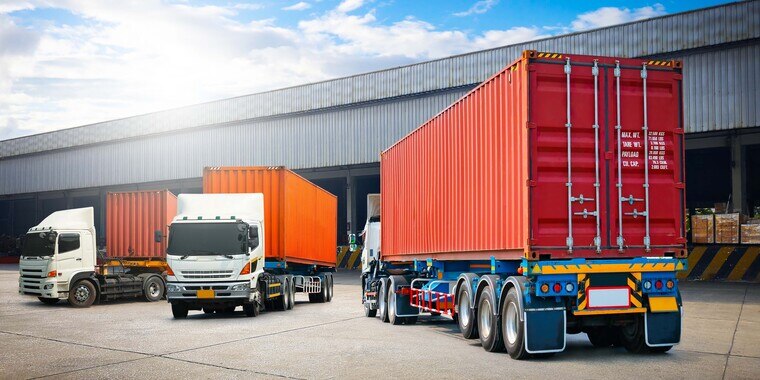Shipping perishable goods to Dubai presents a unique and high-stakes logistical challenge. Items like fresh produce, pharmaceuticals, and gourmet foods demand a precisely controlled environment to maintain their quality and safety. A single misstep in this delicate process can lead to spoilage, financial loss, and damaged client relationships. Success hinges on a deep understanding of cold chain logistics, strict adherence to regulatory standards, and flawless execution from start to finish.
This guide will explore the complexities of handling perishable shipments to Dubai. We will cover the critical aspects of packaging, temperature control, and regulatory compliance, highlighting how modern technology and expert partnerships are essential for preserving the integrity of your sensitive cargo.
The Foundations of Cold Chain Logistics
The core principle of shipping perishables is the unbroken cold chain. This refers to the continuous, temperature-controlled supply chain that keeps goods within a specific temperature range from the point of origin to the final destination. Any break in this chain, even for a short period, can compromise product quality and render it unsellable or unsafe. Maintaining this constant environment requires specialized equipment and meticulous coordination.
The journey begins with pre-cooling the products to their optimal temperature before they are even loaded. They are then placed in refrigerated containers, known as reefers, for sea freight or specialized temperature-controlled units for air freight. These containers act as mobile refrigerators, but their effectiveness depends on proper packing and airflow. It is a common mistake to pack goods too tightly, which can block air circulation and create warm spots within the container, leading to spoilage.
The Critical Role of Advanced Packaging
Proper packaging is your first line of defense in protecting perishable goods. The packaging must do more than just contain the product; it must insulate, protect against physical damage, and help maintain the required temperature. For many products, this involves using insulated boxes, gel packs, or dry ice to create a stable micro-environment.
The choice of packaging materials is crucial. They must be durable enough to withstand the rigors of transit while also complying with international shipping standards. For example, materials must be approved for contact with food or medical products. Furthermore, the packaging design should facilitate proper stacking and airflow within the larger refrigerated container, ensuring that cool air circulates evenly around every carton. Labeling is equally important, with clear instructions for handling and temperature requirements to inform every person who interacts with the shipment.
Technology: The Eyes and Ears of the Cold Chain
Modern technology has revolutionized the management of perishable shipments, providing unprecedented visibility and control. The Internet of Things (IoT) has been a game-changer, allowing for the use of smart sensors placed directly inside containers. These sensors can monitor and transmit real-time data on a wide range of parameters, including temperature, humidity, light exposure, and even shock levels.
This constant stream of data allows shippers and freight forwarders to watch over the cargo throughout its journey. If a container’s temperature begins to deviate from the set range, an automatic alert is triggered, enabling immediate corrective action before any damage occurs. This proactive monitoring capability moves beyond simple tracking; it provides quality assurance and a detailed digital record of the shipment’s condition, which is invaluable for compliance and dispute resolution.
Navigating Dubai’s Strict Import Regulations
Dubai maintains stringent regulations for the import of perishable goods to protect public health and safety. The Dubai Municipality is the primary authority overseeing these imports, and compliance is non-negotiable. All food and pharmaceutical shipments require specific documentation, which often includes a health certificate from the country of origin and a Halal certificate for applicable food products.
Importers must ensure their products meet the UAE’s specific labeling requirements, which include production and expiration dates, product ingredients, and country of origin, often in both Arabic and English. Failing to meet these standards can result in your shipment being rejected at the port, leading to a total loss. Working with a partner who has an in-depth understanding of these local requirements is essential to ensure all paperwork is accurate and all products are compliant before they are even shipped.
Choosing the Right Freight Forwarding Partner
Given the complexities involved, selecting the right freight forwarder is arguably the most critical decision when shipping perishables to Dubai. You need a partner with proven expertise in cold chain logistics and a deep understanding of the Dubai market. An experienced forwarder will have established relationships with carriers that operate reliable refrigerated services and will know how to navigate the intricacies of Dubai Customs and the Dubai Municipality.
Your forwarder should act as a strategic advisor, helping you plan every detail of the shipment. This includes recommending the best packaging solutions, arranging for the most suitable and quickest transport route, and managing all the necessary documentation. They should also provide access to tracking and monitoring technology, giving you complete visibility into the status and condition of your goods. Their expertise provides not just logistical support but also peace of mind.
Ensuring a Fresh Arrival in Dubai
Shipping perishable goods to Dubai is a precise science that leaves no room for error. It demands a holistic approach that combines robust packaging, an unbroken cold chain, advanced monitoring technology, and strict regulatory compliance. By prioritizing these elements and partnering with a specialized freight forwarder, you can mitigate the inherent risks and ensure your sensitive products arrive in perfect condition. This careful planning protects your investment and helps you build a reputation for quality and reliability in one of the world’s most exciting markets

